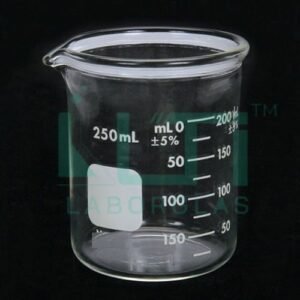- Complies as per DIN EN ISO 4788 standards
- With PE stopper
- Printed in blue color
- * Non DIN
| PART No. | Capacity (ml) | SUB DIVISION (ml) | ±Tol.(ml) | Pack QTY. |
| 3920-5* | 5* | 0.1 | 0.1 | 2 |
| 3920-10 | 10 | 0.2 | 0.2 | 2 |
| 3920-25 | 25 | 0.5 | 0.5 | 2 |
| 3920-50 | 50 | 1.0 | 1.0 | 2 |
| 3920-100 | 100 | 1.0 | 1.0 | 2 |
| 3920-250 | 250 | 2.0 | 2.0 | 2 |
| 3920-500 | 500 | 5.0 | 5.0 | 2 |
| 3920-1000 | 1000 | 10.0 | 10.0 | 1 |
| 3920-2000 | 2000 | 20.0 | 20.0 | 1 |
Here are some common uses for such a mixing cylinder:
- Routine Laboratory Mixing: Class B mixing cylinders with a round base are often used for routine mixing tasks in laboratories where a moderate level of precision is acceptable.
- Educational Purposes: These mixing cylinders are suitable for educational settings, allowing students to learn about basic mixing techniques, liquid measurements, and laboratory procedures.
- Sample Preparation: Class B mixing cylinders can be used for general sample preparation tasks where precise measurements are not critical, and a moderate level of accuracy is sufficient.
- Bulk Solution Preparation: When preparing larger quantities of solutions where precise measurements are not essential, Class B mixing cylinders with a round base can be used for bulk solution preparation.
- Qualitative Analysis: In qualitative analysis or initial screenings where the exact volume is not crucial, Class B mixing cylinders are suitable for approximations.
- General Liquid Transfers: These mixing cylinders are often used for transferring liquids between containers or vessels where a high level of precision is not required.
- Stability with Round Base: The round base design provides stability during mixing, minimizing the risk of accidental spills or tipping over, which is important in applications requiring stability.
- Industrial Applications: In certain industrial processes where a moderate level of precision is sufficient, Class B mixing cylinders with a round base may be used for routine mixing tasks or quality checks.
- Environmental Monitoring: Mixing cylinders may find application in environmental laboratories for tasks that do not demand the high precision of Class A instruments, such as basic environmental monitoring.
- Cost-Effective Solution: Class B mixing cylinders are generally more cost-effective than Class A instruments, making them practical for applications where a lower level of accuracy is acceptable.







